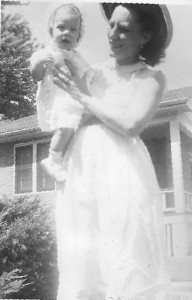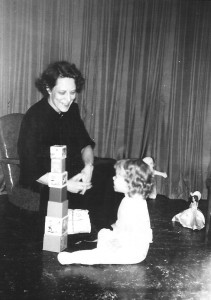With Gratitude to My Mother
Today is Mother’s Day, a perfect day to reflect on the lessons my mother taught me. Let me tell you about Maggie Ward.
My mother, Marguerite Evans Weis, was born in 1913 in West Virginia. Her mother died in the Swine Flu epidemic of 1918. Her father, who spent some time in trouble with the law and with numerous girlfriends and wives, took Mama to live with his mother in Missouri. My great-grandmother was strict and verbally abusive.
My mother was a brilliant woman. She graduated from high school at 16, and went on to college where she tried to major in mathematics. She was denied that major and forced into a Bachelor’s in Education due to her gender. She worked as a bookkeeper at a company, where her supervisor admonished her that she needed to wear a girdle. She worked for her father in his insurance business in Baton Rouge, and ended up having to answer to auditors when her father disappeared suddenly.
She was married for a few years to a man who died while serving in the U.S. Army in Germany. With her widow’s preference, she secured a Civil Service job to teach electronics to Air Force personnel. During her training, she fell in love with her instructor, Kenneth Ward, who had college training in electrical engineering, and had recently finished a tour with the Navy. They were engaged in December 1946 and married in February 1947.
By 1952, when I was born, she had already had two pregnancies. One resulted in stillborn twins. The second one was my sister, Wendy, who lived for only 90 minutes. My mother’s doctor advised her not to try again due to risks to her health. She, however, wanted a child desperately. She spent most of the pregnancy at home with her feet elevated and two weeks past her due date, delivered a healthy, 10 pound baby (me!)
She had abandonment issues, but never let them define her. She had never been given much affection, but she vowed to overcome that lack, and diligently worked to show her love to my father and me. She was a voracious reader and self-help aficionado. In addition to a dog-eared, well-worn Bible with her notes in the margins, the books on our shelves included authors like Norman Vincent Peale and Eric Berne. There were books on yoga, meditation, and on the life of Jesus. She was so far ahead of her time. She took Silva Mind Control classes and taught me the techniques. She and I practiced the lotus position and walked up and down the hallway on our buttocks for exercise.
In 1968, she became involved in the programmed instruction movement. She had taught junior-high school math for years. She was teaching at Ursuline Academy and put the self-paced concepts to the test in her classes. Her students experienced huge successes. She volunteered at a high school completion program, a night school being held on the St. Peter Claver High  School campus. She was asked to teach at the day school when St. Peter Claver transitioned to Healy-Murphy Center, the first alternative school in the State of Texas (before any of us knew what an alternative school was.) Her classes were all self-paced, which worked well for the school population made up primarily of pregnant teenagers and high school dropouts. Her legacy is that all the courses at Healy-Murphy High School are now self-paced.
School campus. She was asked to teach at the day school when St. Peter Claver transitioned to Healy-Murphy Center, the first alternative school in the State of Texas (before any of us knew what an alternative school was.) Her classes were all self-paced, which worked well for the school population made up primarily of pregnant teenagers and high school dropouts. Her legacy is that all the courses at Healy-Murphy High School are now self-paced.
My mother taught me that information and education were inherently good. She instilled a curiosity in me that has been a guiding principle in my life. She asked me questions rather than issuing edicts, and she taught me to think for myself. She was excruciatingly honest, but never negative. If I asked her how I looked in a particular outfit, and she thought I needed to change, she would say, “I’ve seen you look better.”
She adored her grandson and thought he was the most adorable child on the planet. She had less than three years left when he was born. If I had any idea we would lose her so soon, I would have spent more time with her and find a way for her to spend more time with him. She believed my son was exceptional. She was right.
She died in 1982 at the age of 69. I think she wanted an early exit. She had outlived her mother and father, a husband, and three children. I often felt she did not want to outlast my father. They were still in love when she died.
She was, at her core, a teacher, and I wonder how different her life (and mine) would have been if she had not been blocked by the sexism that existed in the 1930s. I know that my ability to coach, teach, and facilitate comes from her consistent example. That was an extraordinary gift. But the most fundamental treasure she provided me was the ability to love and show that love. Had she not worked so hard to be a warm and affectionate mother, I would not be able to enjoy today as a mother and grandmother.
Happy Mother’s Day, Mama. Thank you.